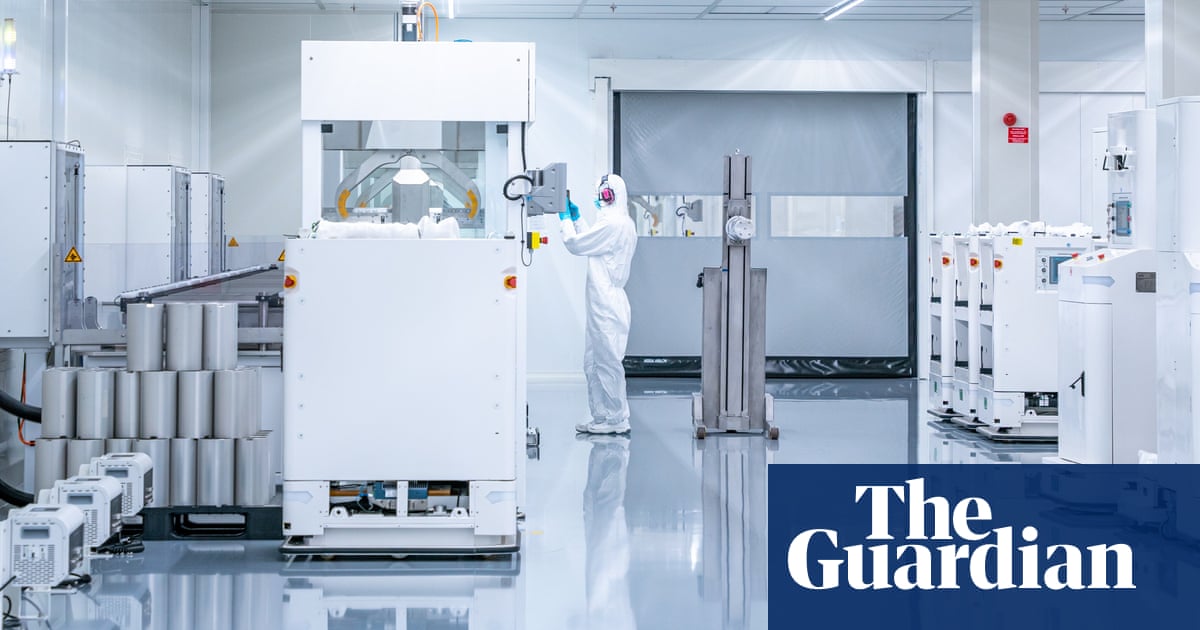The EU has announced €4bn (£3.4bn) of state aid investments in new factories producing electric batteries for cars, heat pumps and solar panels as it seeks to accelerate production and the uptake of green technologies and combat cheap Chinese imports.
The Swedish battery producer Northvolt will receive €902m in state aid to build a new factory in Heide in Germany, while a wide range of clean tech factories in France are to get a €2.5bn bump in state aid.
That doesn’t seem very much at all.
Three year old article
"State subsidies for company cars top €32bn in UK and EU
UK alone spends €5.7bn and Germany €12bn but analysis finds subsidies often go towards most polluting fleet vehicles"
Especially heat pumps and insulation could do with huge goverment aid.
That doesn’t seem very much at all.
This article is also 3 three years old; Germany allocated € 5 bn and UK 3 bn for EVs.
If I see this correct, it was a 44-56 % split three years ago.
I couldn’t find any proper comprehensive and comparable studies for subsidies and investments in ICE and EV.
Also there is a difference between subsidies like incentives, tax cuts, and investments
Still substising a developed industry that is polluting seems like a bad idea. Don’t know why they are getting any money to make an ICE car
I’m not even convinced the push to evs is the right answer. It should be a push to public transport.
This is the best summary I could come up with:
The EU has announced €4bn (£3.4bn) of state aid investments in new factories producing electric batteries for cars, heat pumps and solar panels as it seeks to accelerate production and the uptake of green technologies and combat cheap Chinese imports.
The investments form part of the EU’s mission to be climate neutral with net zero gas emissions by 2050 but are also designed to help insulate the bloc from the growing competition from Chinese car, solar panel and other green tech factories.
The Chinese conglomerate Build Your Dream (BYD), which launched lower-cost electric cars in the EU last summer, recently became the world’s number one producer of hybrid and battery-only vehicles.
The near €3bn in state aid earmarked for France will support the production of batteries, solar panels, wind turbines and heat pumps, along with key component and critical raw material supply chains, the EU said.
Last year the European Commission president, Ursula von der Leyen, announced an investigation into potential Chinese state subsidies into the automotive industry, bringing with it the threat of a trade war.
But during a visit to Beijing at the end of the year she tried to persuade Chinese officials that the European market would not remain open if it was found to compete unfairly with local enterprise.
The original article contains 532 words, the summary contains 213 words. Saved 60%. I’m a bot and I’m open source!
I can’t really be too offended by this since the US introduced the IRA to lure green companies to the US. Just leveling the playing field.
The Irish Republican Army?
Inflation Reduction Act
Muchas Gracias.
[…] combat cheap Chinese imports.
Tariffs? But companies are relying on China too much.
Trump tried tariffs with China. The US lost that trade war, the EU would too.
China have successfully tied up raw materials production in some key areas. Not just their domestic supply, but their belt and road tactics in Africa. Then Russia is obviously out
North American and South American supplies tend to.trade with the US.
Australia is our best source of Lithium and a lot of that is currently entering the Chinese market before being sold on globally as China have become a regional hub.
It’s not just “companies relying on China”. China has deliberately positioned themselves to have control of raw materials. The west, in general, has not.
The West has done the same for tertiary economic products and hi-tech manufacturing products. So in general trade is at a reasonable economic equilibrium. But as Chinese technology improves, and they manufacture more difficult products domestically, we do have to look at building a secure raw materials to final production route for our industries.
I think there is some legal aspect in Europe that prohibit or limit the possibility of applying tarriff against a specific country.
That’s just between EEA countries. We’re free to levy tariffs against third parties AFAIK.
Too little, too late, better than nothing.




